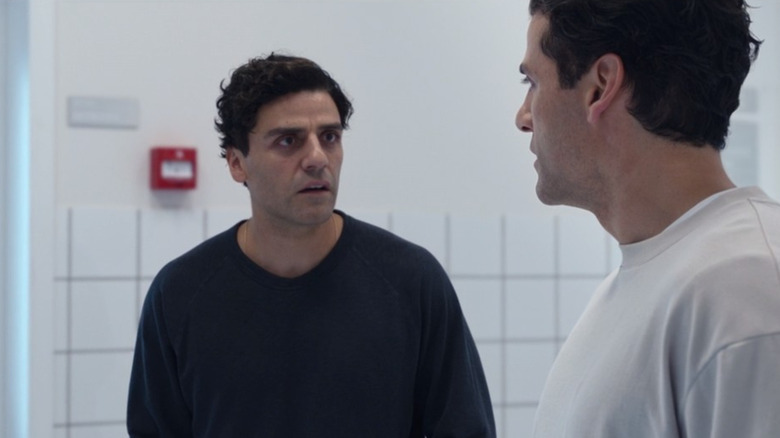Duat In Moon Knight Episode 5 Explained
Contains spoilers for "Moon Knight" Season 1, Episode 5
The Marvel Cinematic Universe has been known to lean on the comic books for inspiration yet alter the shows and films just enough to fit the effect or outcome in the story that the studio is striving for. With every MCU series that has been released, fans excitedly comb through the episodes, looking for Easter eggs and trying to figure out which comic book a character or story may have been taken from. With a complicated protagonist like we have in "Moon Knight," viewers have been in overdrive, trying to make sense of the character's story and its connection to the real-life history of Egyptian mythology.
In Episode 5 of "Moon Knight," Taweret (Antonia Salib), the goddess of childbirth and fertility, welcomes Marc and Steven (Oscar Isaac) into the realm of the Egyptian underworld: Duat. Steven excitedly tells Marc that she's guiding them through their journey in the afterlife. When they're confused as to why it appears they're in a psychiatric ward, Taweret explains that the human brain can't understand the complexities of Duat, so their brain has turned it into something they can more easily comprehend.
Marvel's explanation of Duat, the Egyptian underworld, is fairly simple but differs in key ways from Egyptian mythology.
Marvel's version of Duat differs from Egyptian mythology's
In both "Moon Knight" and Egyptian mythology, Duat is referred to as the Egyptian underworld. But in ancient Egyptian mythology, Duat is also described as a vivid world with rivers, fields, caverns, lakes of fire, and trees of turquoise (via Google Arts & Culture). It was also home to many gods. Marvel's solution to why we don't see any of these things is explained by Taweret's statement that human brains can't comprehend Duat, which unfortunately means we don't get any depictions of this marvelous underworld.
In "Moon Knight," we see Taweret weighing Marc and Steven's hearts, even though Egyptian lore makes it clear that the god Osiris does this, weighing the heart against the white feather of Ma'at — harmony and balance (via World History Encyclopedia). But it's worth noting that this doesn't seem to be Taweret's usual job in "Moon Knight," with the goddess searching her notes for what to say and expressing delight and surprise when she successfully pulls Marc and Steven's hearts out of their chests. Perhaps an explanation for why Taweret is here instead of Osiris is coming later.
The last aspect Marvel altered has to do with what becomes of the person after their heart is found to be unbalanced. In Egyptian mythology, it is eaten by the goddess Ammit, but in "Moon Knight," Taweret tells Marc and Steven that if their hearts don't balance, the dead, unbalanced souls of Duat will take their own soul.
Marvel's changing of key elements of Egyptian mythology may irk some people, but the studio is likely banking on fans getting past the alterations and just enjoying the story being created.

